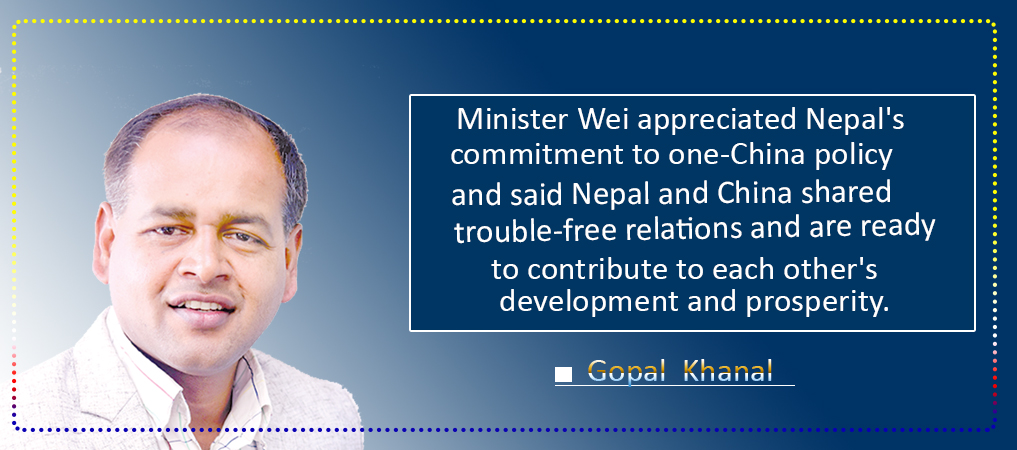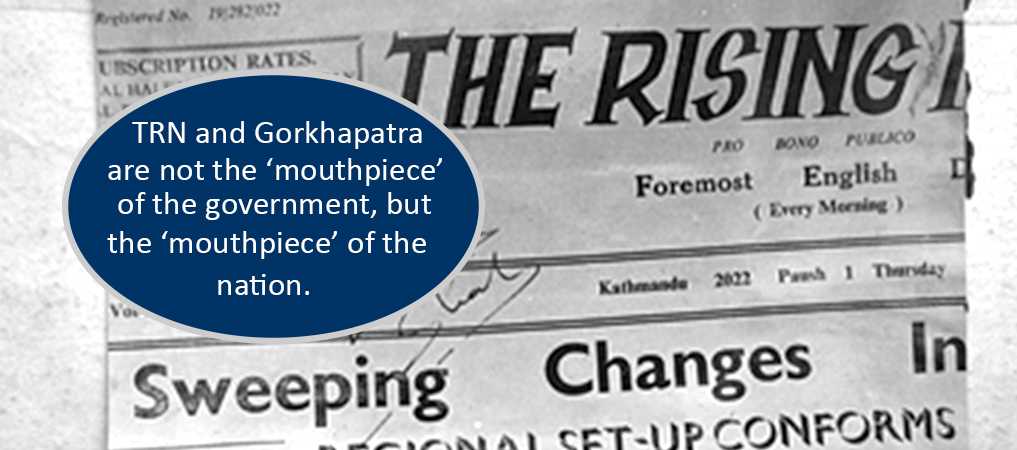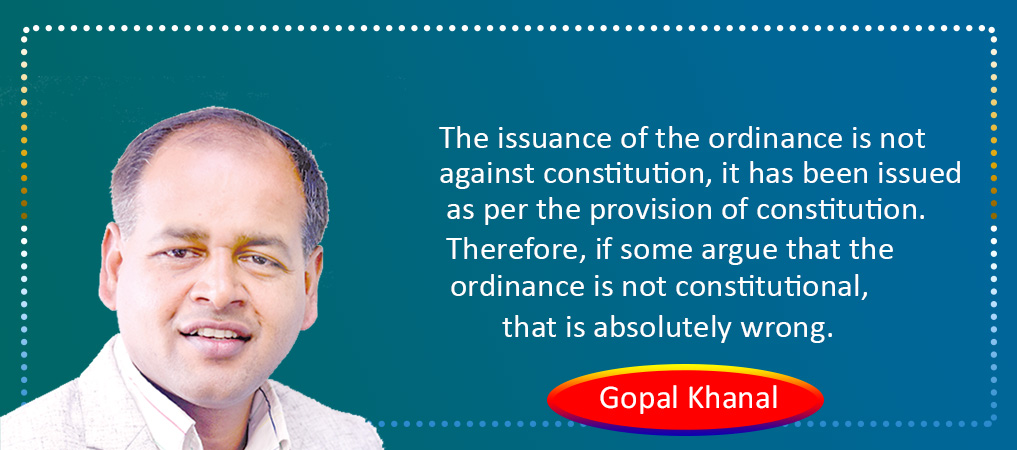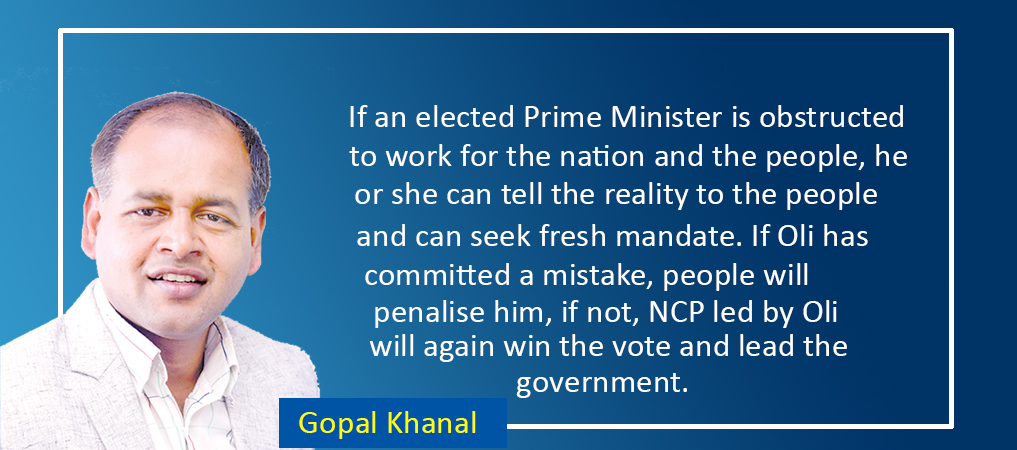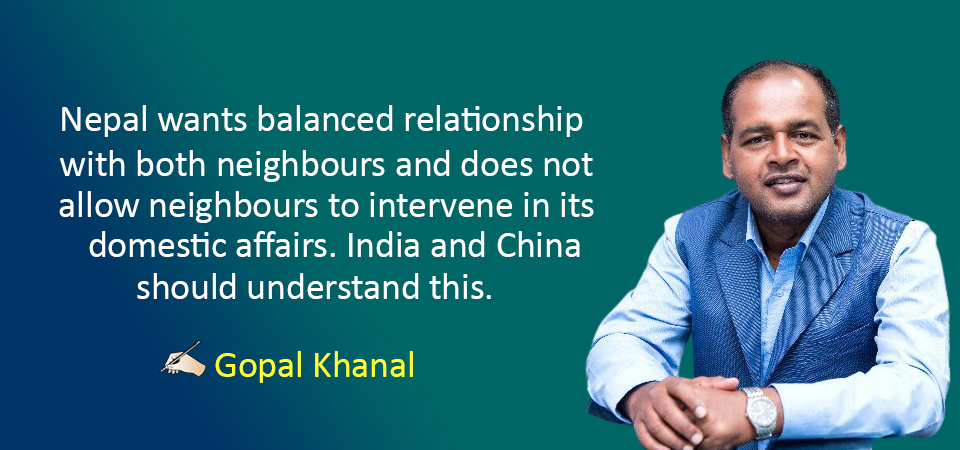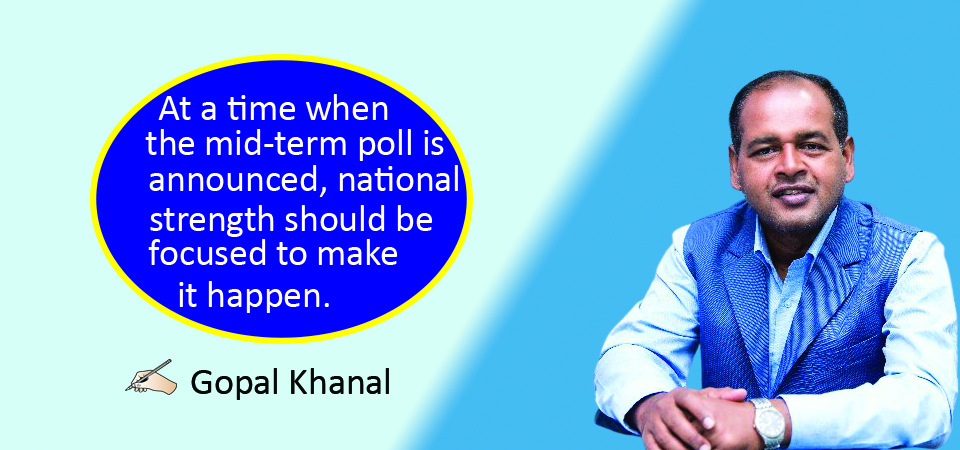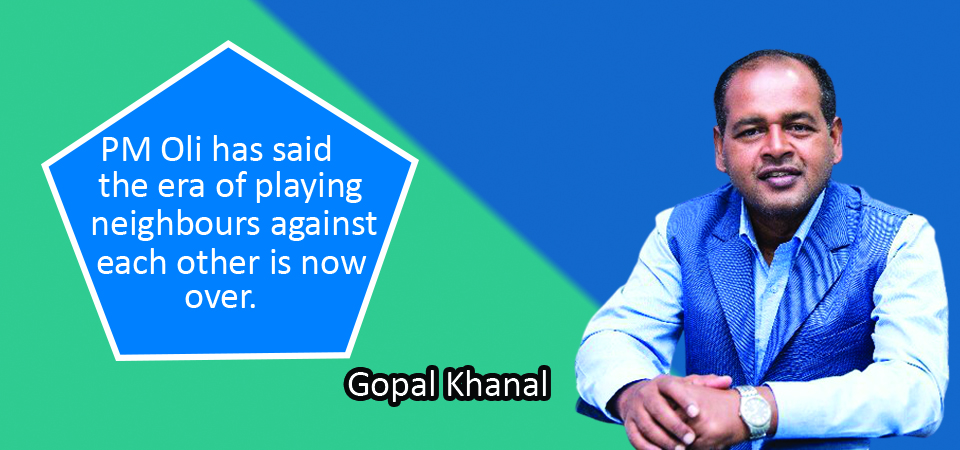Nepal's Integrated Foreign Policy
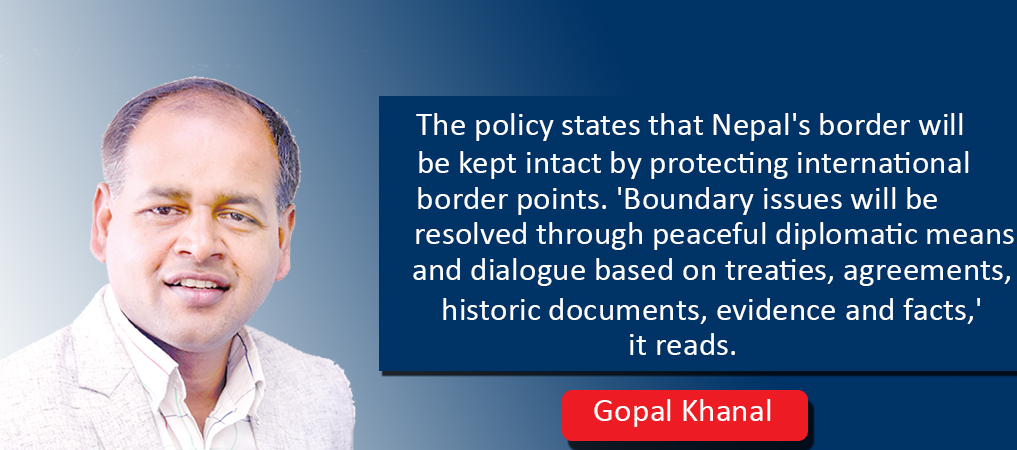
Gopal Khanal
Foreign policy directs the undertakings and relationship of one state in its dealings with other states and international agencies. The formulation of foreign policy is fundamentally influenced by domestic thoughts and reality as well as the policies or behaviours of other states. It is also called the extension of domestic policy, but this notion has flaws, too.
Nepal has its own foreign policy and has been efficiently conducting foreign relations but it required an integrated document comprising of all facets of foreign policy and diplomacy. KP Sharma Oli-led Nepal Communist Party’s (NCP) government has prepared the historic document of country’s foreign policy. This is the first foreign policy document that seeks to transform Nepal's identity as sovereign, independent and land-linked nation from the blurred identity of previous regime.
On 6 December, Minister for Foreign Affairs Pradeep Kumar Gyawali made public the new and integrated foreign policy that has kept the protection of national interest and security at the top priority. The policy spells out in coherent manner, the norms, values and perspectives of Nepal’s external engagements. The policy is in light of regional and global changes. It has naturally underlined the elements of continuity and changes on the basis of emerging dynamisms, trends and norms in the international politics and diplomacy.
Urgency
Highlighting the urgency of this consolidated foreign policy Minister Gyawali said that the Ministry unveiled the new policy document because matters relating to foreign policy were expressed in one way or other in the country's various policy documents, including the constitution, national security policy, annual budget, prime minister’s speeches and other policy documents. But, there was a lack of an integrated foreign policy document. He said, "Matters relating to foreign policy conduct were scattered in our national documents. Various task forces were also formed to bring foreign policy documents in different times. But there was no integrated one like what we have documented now.''
Gyawali further said the direction of Nepal's new foreign policy is based on the principle of 'amity with all, enmity with none.' It is theoretically idealistic, but practicality can be different and that might lead to misunderstandings and conflict though rarely. Prime Minister Oli and Minister Gyawali had been constantly saying that Nepal's national interest will never be compromised and genuine interests of neighbours and other friendly nations would be addressed, and the document has rightly incorporated this value, taking cognizance of the geopolitical setting.
Evaluating the achievements of the past and reviewing the overall situations of the present, the new policy has highlighted some points which are very much significant to further guide Nepal's foreign policy. According to the new foreign policy, the country will conduct its independent and balanced ties with the neighbouring countries based on the principles of Panchsheel, the UN Charter, and good neighborliness.
The document has said Nepal has an effective presence in the international, regional and sub-regional forums. This is a known fact that during Oli’s premiership, Nepal's international image has been greatly enhanced. Nepal has demonstrated her capability in the UN, NAM, SAARC and other global and regional forums. Similarly, it has laid emphasis on constructive and active role in regional and sub-regional forums like SAARC and BIMSTEC.
Another important constituent of the foreign policy is sovereign equality. Nepal has maintained foreign relations on the basis of sovereign equality and will expand and enhance its ties with neighbours and other countries based on equality, mutual respect and benefits. Sovereign equality is the policy introduced by Prime Minister Oli as a foundation of Nepal's foreign policy thoughtfully introduced considering the geopolitical sensitivity of the country. Prime Minister Oli often says that nations are bigger or smaller, but sovereignty is equal. Nepal cannot formulate its policy according to the size of the country. This policy approach has restored the self-confidence of Nepal and Nepali people.
The document has also reviewed the past agreements and reiterated their update with the changing time. In the review part, it has rightly judged the international environment and anticipated what the world would look like in future and what role Nepal would like to play in the international arena.
Protecting border
The policy states that Nepal's border will be kept intact by protecting international border points. 'Boundary issues will be resolved through peaceful diplomatic means and dialogue based on treaties, agreements, historic documents, evidence and facts,' it reads. Now onwards, Nepal will deal with boundary issues through peaceful means and with evidence. The policy also reiterates Nepal's long-standing policy of not allowing its soil to be used against neighbouring and other countries, while expecting similar cooperation and commitment from them.
With the introduction of integrated foreign policy, it is imperative for all stakeholders, mainly the government and political parties to translate it into action, enabling the nation to boost its international image and muster global cooperation to achieve its overriding goal of stability, prosperity and happiness of people.
(Khanal is consulting editor at Gorkhapatra Corporation. khanalbro@gmail.com)
Recent News

Do not make expressions casting dout on election: EC
14 Apr, 2022
CM Bhatta says may New Year 2079 BS inspire positive thinking
14 Apr, 2022
Three new cases, 44 recoveries in 24 hours
14 Apr, 2022
689 climbers of 84 teams so far acquire permits for climbing various peaks this spring season
14 Apr, 2022
How the rising cost of living crisis is impacting Nepal
14 Apr, 2022
US military confirms an interstellar meteor collided with Earth
14 Apr, 2022
Valneva Covid vaccine approved for use in UK
14 Apr, 2022
Chair Prachanda highlights need of unity among Maoist, Communist forces
14 Apr, 2022
Ranbir Kapoor and Alia Bhatt: Bollywood toasts star couple on wedding
14 Apr, 2022
President Bhandari confers decorations (Photo Feature)
14 Apr, 2022




